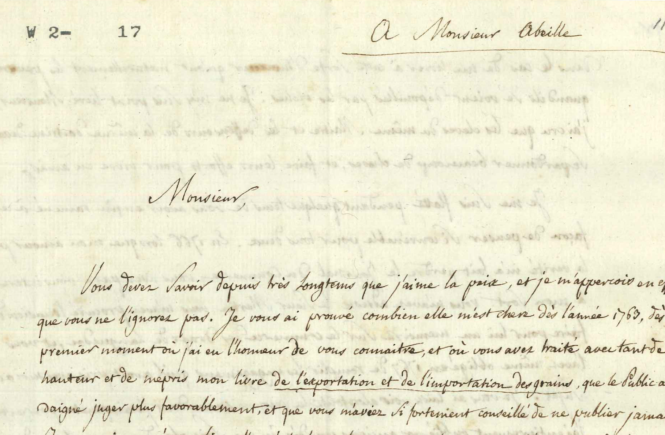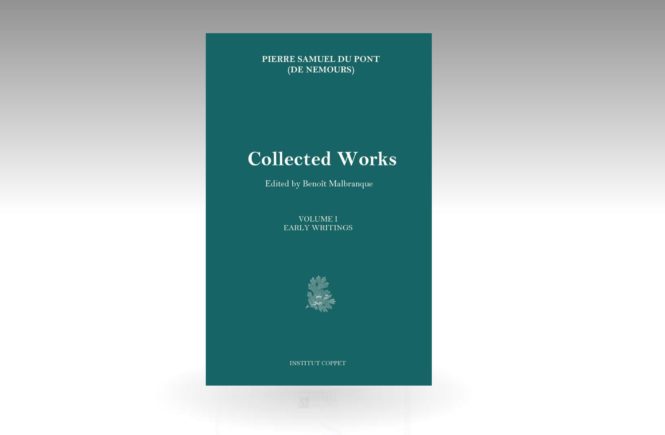Chapter from , Commerce and Government Considered in their Mutual Relationship, translated by Shelagh Eltis, with an Introduction to His Life and Contribution to Economics by Shelagh Eltis and Walter Eltis (Indianapolis: Liberty Fund, 2008). http://oll.libertyfund.org/titles/2125.
Blows Directed Against Commerce: Wars
We have seen what freedom can achieve. It is time to sow dissension among our peoples, and to place constraints on trade: our assumptions will be the more plausible for that.
Divided by wars they form several nations which have opposing interests.
Now if we may assume that each of these nations trades freely within its boundaries we may no longer assume that they all trade freely with each other.
External trade, always hampered and sometimes suspended, will be all the less flourishing as it will be more expensive, whether from the losses to which it is exposed, or through the efforts made to sustain it.
These nations therefore do themselves mutual harm: firstly, because they each deprive themselves of the advantages which they would obtain for each other through exchanges.
Secondly, they harm themselves more, because they lay waste each others’ lands. Each time they take up arms, they destroy a stock of wealth which they could have put into circulation, and which cannot be there any more. There will be fields which warfare will not allow to be sown: there will be others, where it will not allow any harvesting. Consequently, products will diminish, and the population with them.
I want some of these nations to cover themselves with glory, with that glory which the peoples, in their stupidity, attach to conquest, and which historians, stupider still, love to celebrate to the point of boring the reader: what will be their advantage? They will rule far away in countries once populous and fertile, and now in part deserted and uncultivated. Because it is not by exterminating that they will assure their sway over previously free peoples. Let us assume that our cities are reduced to four enemy nations, more or less equally powerful, or which attempt to maintain themselves in a kind of equilibrium.
Are they equally powerful? They will hurt each other equally.
Do they try to keep themselves in a kind of balance? Two or three will [[258]] join against a power whose dominance threatens to subject them, and they will hurt themselves again. The war will cost even the conquering nation provinces; because I regard as lost, provinces where the population and cultivation have been ruined or markedly damaged. Indeed, an empire which lost population and let lands fall fallow would not be the greater for having pushed back its boundaries.
But this balance, will one succeed in establishing it? Never: only false steps will be made, and anxiety will seem the sole moving force of the powers: they will confidently abandon themselves to the most ruinous projects, to carry them out in a more ruinous manner still.
Now, in this disorder, will the lands be as rich in products as when they were divided between a host of peaceful cities? They will be all the less so, as, with war taking away all freedom to trade, the surplus will cease to pass reciprocally from one nation to another. So it will not be consumed any more: now once it ceases to be consumed it ceases to reproduce itself.
While agriculture is damaged, many manufactures will collapse; and those which still exist will not have the same market any more. Normally they will only be able to sell to the nation in which they are established; and they will sell less to it, because that nation will itself be less rich.
No doubt you will say that these peoples will not always be at war. Indeed, there will be intervals of peace: but in those intervals you will not make good all the evils war has caused; and yet people will place new obstacles in the way of trade.


